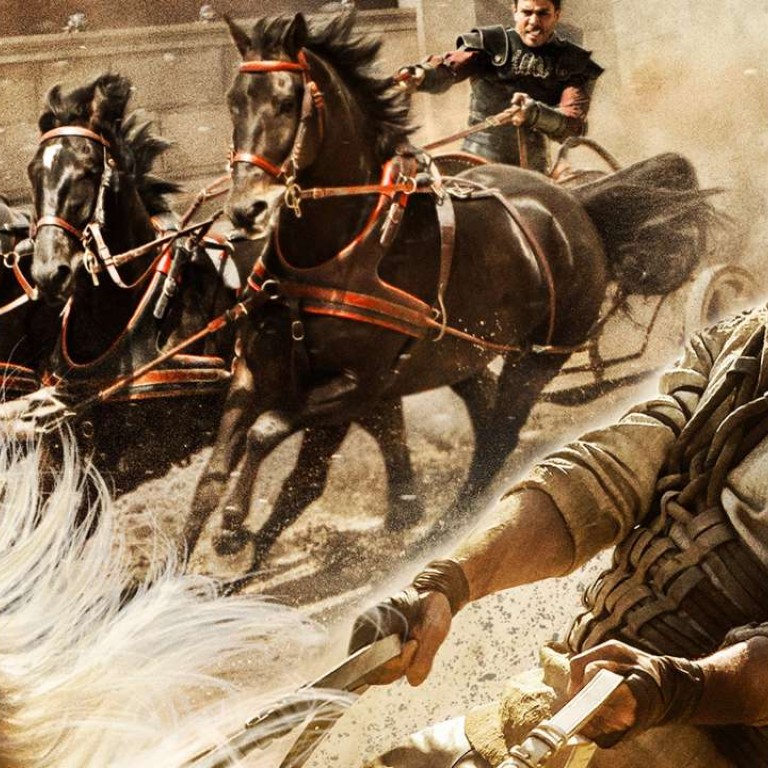
‘A dirty word in Hollywood’: why viewers are sick of constant remakes
The number of Hollywood reboots and remakes continues to rise, but recent flops like Ben-Hur and Ghostbusters may point to audiences growing tired of what many see as lazy filmmaking
With so many remakes hitting cinema screens these days, something is probably being rebooted in Hollywood right this second. But is that a good thing?
Remakes have become de rigueur in recent years, not only as a way to make money off an old property, but also to potentially jump-start a franchise. There were 11 reboots or remakes in the top 100 films of 2014, according to the website Box Office Mojo, and 13 in 2015.
However, there’s a certain inherent complacency to remaking the familiar and defaulting to nostalgia, argues Paul Dergarabedian, senior media analyst for comScore. “It’s too competitive out there. You’ve got to be a cut above.”
Results so far this year haven’t been great for reimaginings. A live-action/CGI revival of The Jungle Book grossed US$364 million, but the female-centric Ghostbusters didn’t live up to expectations (US$127.4 million), another film, Pete’s Dragon, met with a lukewarm reception (US$74.2 million) and an updated Ben-Hur bombed spectacularly (US$26.3 million). Meanwhile, original fare such as The Secret Life of Pets (US$364.3 million), Deadpool (US$363 million), Zootopia (US$341.3 million) and Suicide Squad (US$318.1 million) have cleaned up.
Last weekend, a star-studded revamp of The Magnificent Seven managed a US$34.7 million debut, but with a US$90 million budget and mixed reviews (only 61 per cent of critics liked it on aggregate site Rotten Tomatoes), success might be fleeting.
“There’s this stigma about reboots – the very fact that it’s a reboot turns audiences off, whether it’s a good film or not,” says Jeff Bock, senior box-office analyst for Exhibitor Relations. “It’s a very dirty word in Hollywood right now.”

Not that you’d know from looking at what’s coming up. Next year alone, there are remakes of the kid-friendly blockbuster Jumanji (with Dwayne “The Rock” Johnson and Kevin Hart), cult thriller Flatliners, supernatural action-adventure The Mummy (powered by Tom Cruise), a live-action version of Disney’s classic Beauty and the Beast, yet another Friday the 13th and Stephen King’s clown-filled It.
This “incredible reliance” on previously established brands has become a crutch where “you’re taking just as much a chance, in my opinion, as you would if you spent US$100 million on something original,” says Dergarabedian.

“The problem is when films that are still very much in the zeitgeist, and are still beloved, wind up being rebooted. It seems desperate,“ Ryan says. “Total Recall and RoboCop made no sense. Those original films are still part of culture. There’s no way Back to the Future will be rebooted for this very reason. The originals are magic.

Many of these recent redos are lazy filmmaking, according to Bock, and allow all those acclaimed original TV series on HBO, Netflix and Amazon to win viewers.
“By doing remakes and reboots, you’re giving up originality to the small screen. You’re throwing in the towel,” says Dergarabedian.
But the biggest issue threatening Hollywood’s love for remakes is a systematic and consistent quality problem, he adds. “Over time, that erodes goodwill. You don’t want the reboot/remake/sequel part of the business, which is so important, to get a reputation as a ‘less than’ product.”

